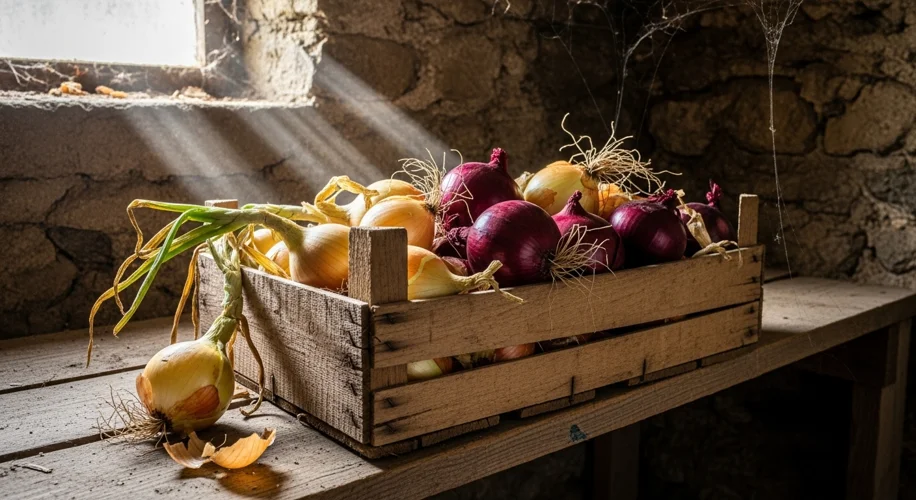Summer’s bounty is often a time of celebration, but it also brings the challenge of preserving our harvest. Recently, I got a great question from a reader in an arid climate asking about the best way to store onions. It’s a fantastic question, especially when you’re dealing with less humidity than we might be used to here in the Midwest.
Storing onions properly is key to making them last, and it’s not as complicated as you might think. Onions need a few things to stay firm and flavorful: cool, dry air circulation. Think of it like giving them their own little breathable pantry.
For many of us, especially those with drier air, the goal is to mimic those ideal conditions. When you harvest your onions, the first step is curing them. This usually involves letting them dry in a warm, airy place for a week or two until the necks are dry and the outer skins are papery. This step is crucial for preventing rot and mold, which is even more important in drier climates where moisture might not be the immediate enemy, but lack of proper airflow can still cause issues.
Once cured, the best place for most common onion varieties (like yellow, white, and red) is a cool, dark, and well-ventilated spot. Basements, cellars, or even a cool pantry can work well. The key is air circulation. You don’t want them packed tightly together. Using mesh bags, crates, or even old pantyhose hung from the ceiling allows air to move around each onion.
What about those arid conditions? Well, the principles remain the same. While you might not have to worry as much about ambient humidity causing spoilage, you still need to prevent them from drying out too much or sprouting prematurely. The goal is a stable environment. If your storage area is exceptionally dry, you might find onions shriveling a bit faster. However, as long as they’re properly cured and have good airflow, this is usually minimal.
Avoid storing onions in plastic bags or sealed containers, as this traps moisture and will lead to spoilage. Also, keep them away from potatoes, as they release gases that can cause each other to sprout and spoil more quickly.
So, for our friends in drier regions, focus on that essential airflow. Make sure your cured onions aren’t piled too high, and choose a location that’s consistently cool and dark. A little planning now means you can enjoy the fruits (or rather, vegetables) of your labor for months to come. Happy storing!

